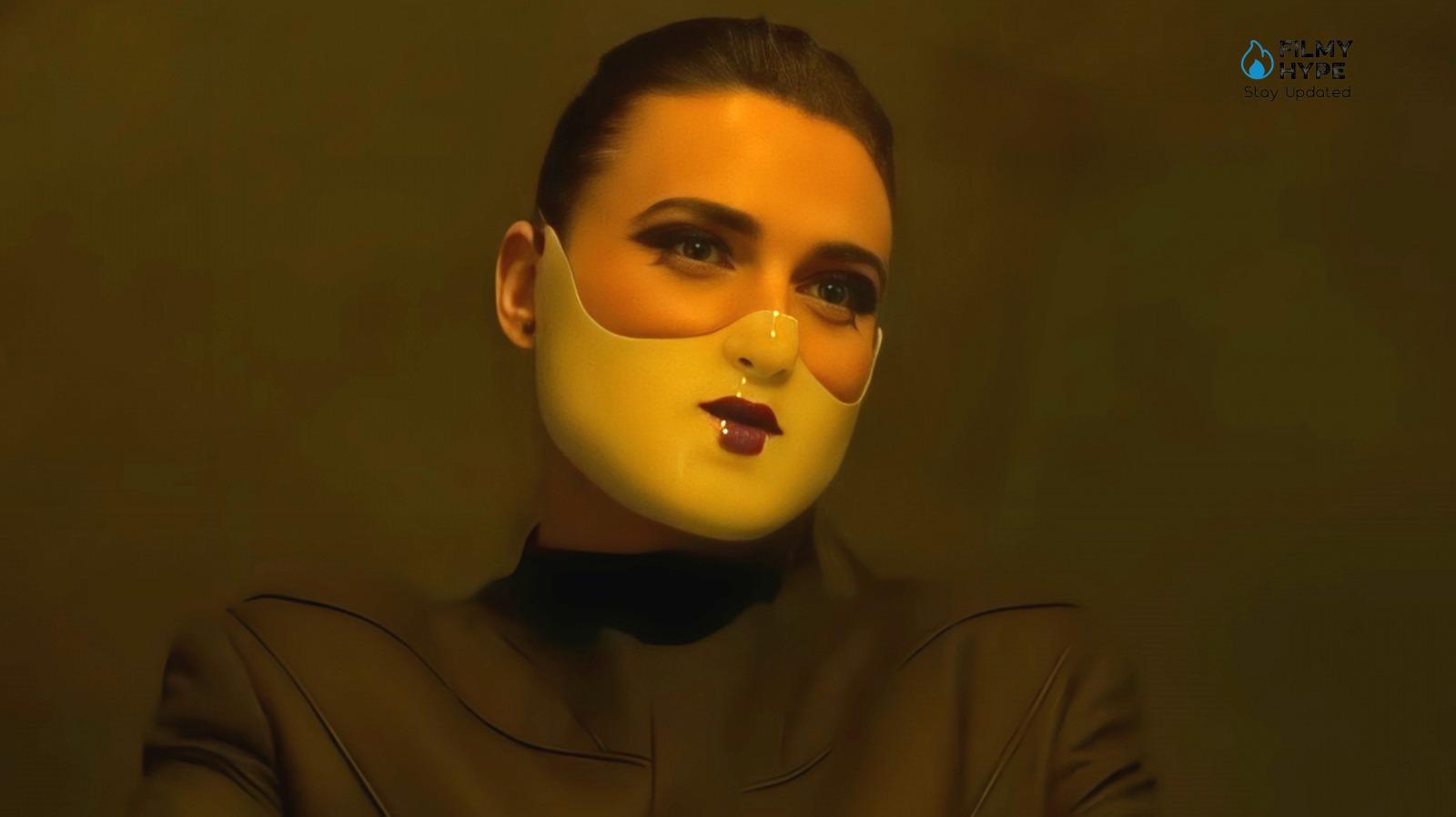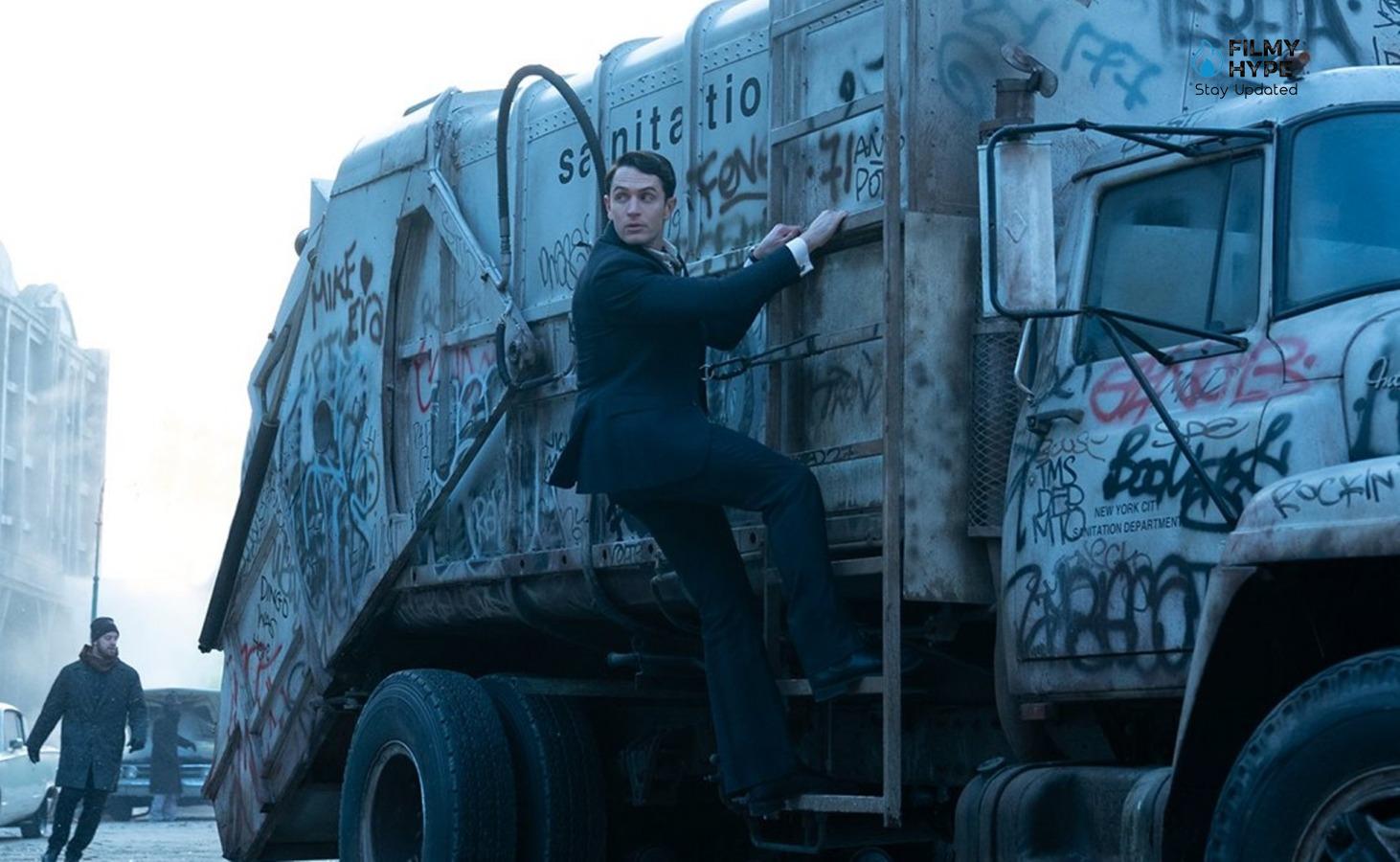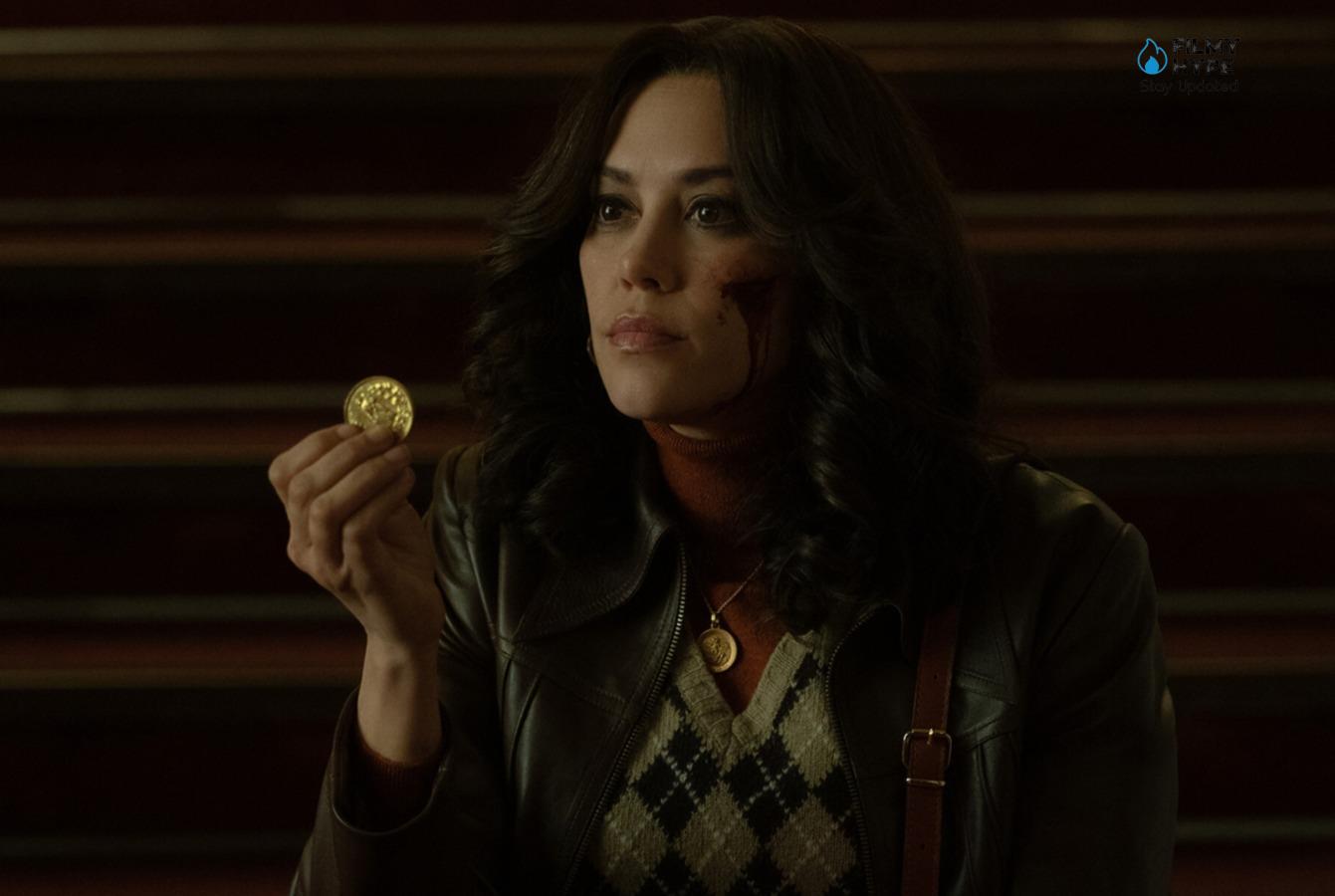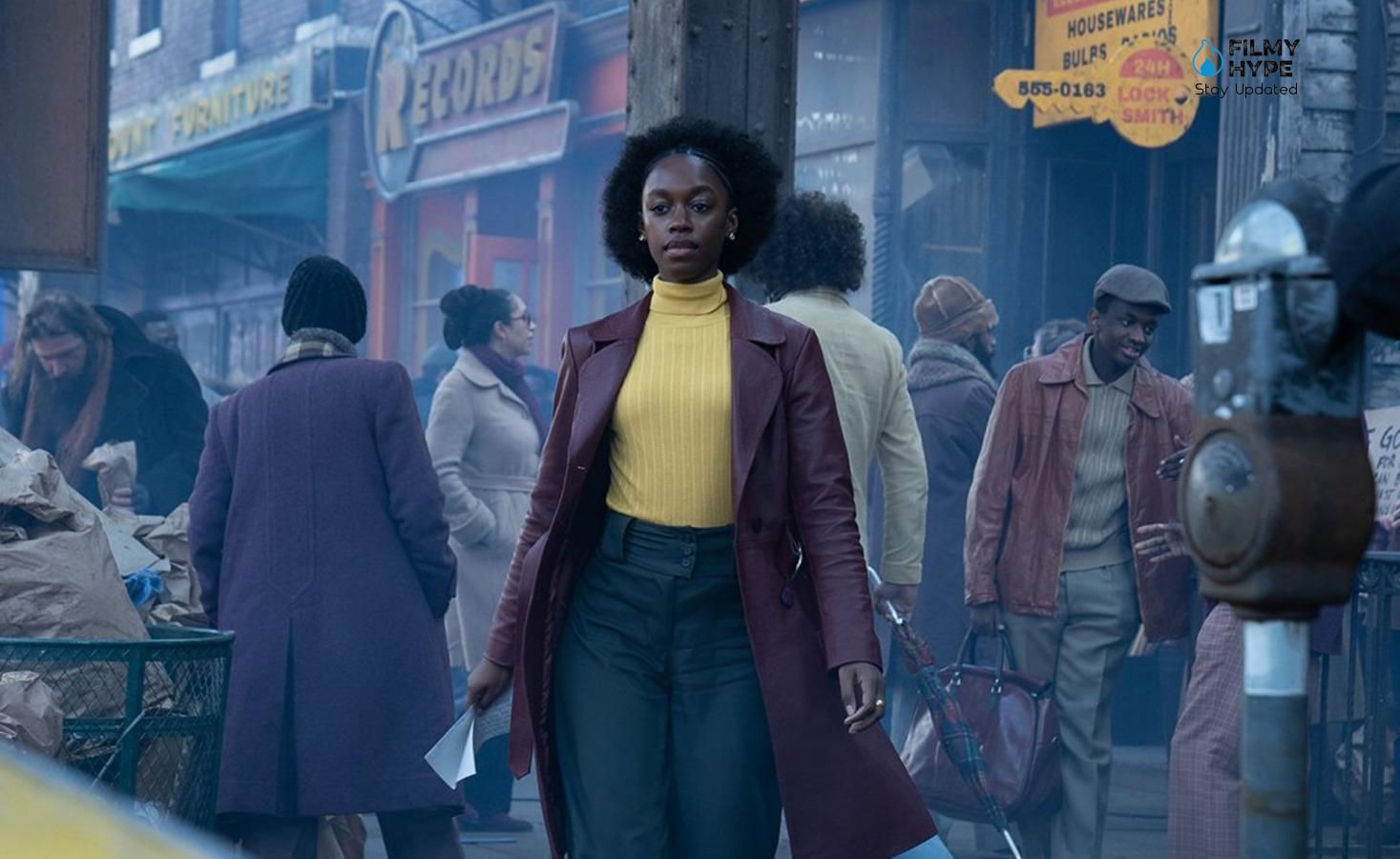The Continental Episode 3 Review: Triggers the Desire To Delve Deeper Then It Means He Hit The Mark
Cast: Mel Gibson, Colin Woodell, Mishel Prada, Ben Robson, Hubert Point-Du Jour, Nhung Kate, Jessica Allain, Ayomide Adegun, Jeremy Bobb Running
Directed By: Albert Hughes
Streaming Platform: Peacock and Amazon Prime Video
Filmyhype.com Ratings: 3.5/5 (three and a half stars)
The Continental Episode 3 was released on Peacock streaming platforms and for other countries on Amazon Prime Video. Between the release of the second in cinemas and the writing of the third chapter of the saga dedicated to John Wick, there began to be talk of the creation of a prequel for television. Initially a murmur, nothing serious. One of those ideas that come up during brainstorming, is perhaps discarded immediately. It is one of those ideas that take root, from which in the end you can no longer free yourself, which becomes an obsession, until their catharsis of realization and subsequent broadcast. The choice to opt for the small screen was clear from the beginning. To be able to tell something about the past of John Wick one movie wasn’t enough. Better to focus on a series. Maybe mini. Few episodes. Maybe three. With a beginning, a middle, and an ending. It did not leave any unfinished business and, at the same time, had a solid and significant structure that satisfied the public. And so, here is The Continental: From the World of John Wick (the original title) distributed in the United States on Peacock while in the rest of the world, it is possible to see it on Prime Video.

As expected, the third and final episode of the miniseries The Continental is the climax of what had been built in the previous chapters, with the stage of the hotel that gives the series its title hosting a bloody party with a high body count and many graphic deaths. In narrative terms, it is an extremely problematic outcome, as I will say later, but with a little more frenzy and action to keep the audience’s attention. Despite the rating, I consider Theater of Pain better and more entertaining than Loyalty to the Master and even Brothers In Arms, which I gave a higher rating, but as a season finale it’s difficult not to go past the mediocrity that is the conclusion of the story and the miniseries itself, hence the low rating.
The Continental Episode 3 Review: The Story Plot
New York City, 1955. Two boys ran into the night. Cut. A very young Winston Scott and his brother Frankie sit in an interrogation room of a police station. Winston cries, between sobs, he turns to Frankie; he tries to calm him down, to reassure him. The camera closes in on their faces. Winston Scott’s parable begins on the surface of a tear-stained face, in the mid-1950s. And he immediately abandons her, teleporting “years later” into the folds of the Seventies. In London, Winston (Colin Woodel) is a busy businessman on the rise; in New York, however, his brother Frankie (Ben Robson) organizes and carries out a theft against the criminal Cormac (Mel Gibson). Their paths, which have remained separate for a long time, will once again intersect in the streets of the Big Apple, triggering an uncontrollable spiral of violence which, between new tasks and traces of an unresolved past, will mark Winston’s rise to the top of the American criminal world. From the whine of a dog to the crying of a child. Again, the pain is at the origin of ferocity, brutality, and greatness.
Before the advent of Winston Scott along with his right-hand man Charon, there was another man in charge of the New York hotel, namely Cormac, played by Mel Gibson. It is interesting to note how many of the predecessors we learned about during the various films dedicated to John Wick, for example, the King of the Slums played by Laurence Fishburne in the films. The Continental thus sees the birth of Winston Scott as we know him, not very skilled in combat, but infallible in devising plans and subterfuges useful for his purposes. The series tells how Winston manages to take control of the hotel thanks to a well-thought-out plan, taking the place of Cormac, the villain of the series.

Mainly thanks to Mel Gibson‘s incredibly over-the-top performance, the character is completely out of control and when we see him on stage, he stands out from the rest. Together with Cormac, we also find several killers with bizarre features, among all of which the twins, Hansel and Gretel, stand out in particular, who rarely utter a word, but who play a fundamental role in the development of the series and Winston‘s character. Precisely the relationship between him and Charon was born here, thanks to the different needs that they both have, they join forces and from that moment on they will never be separated, until the last chapter of the John Wick saga. As with the films, here too the supporting characters play a fundamental role in the mission and are much more in-depth than what we see in the films.
The Continental Episode 3 Review and Analysis
And now let’s get to the point. In the meantime, we need to make a necessary and important premise: if you are a die-hard fan of films, put your expectations aside or you will be severely disappointed. This triptych is not focused on the character of John Wick but, rather, on the world around him. Certainly, one of the most fascinating characters within the saga, capable of creating a real mythology around itself, is The Continental Hotel in New York, with its peculiarity of being a free zone that welcomes the most ruthless killers on the planet. We realize how difficult it can be for lovers of the character played by Keanu Reeves to approach a product, especially a television one, that completely sets aside their main hero. But we can guarantee you that you will not regret it. The miniseries deeply establishes its roots in the already known atmospheres of the film saga in such a way as to be able to develop and enrich, in full creative freedom, the Wickian universe by offering new, potentially infinite ideas.
In the long shots that the director gives us of the exteriors of The Continental hotel, there is a significant detail that immediately catches the eye, capable of creating strong opposition. While the sky is a celestial blue dotted with soft white clouds that open up to boundless spaces, on the ground, on the damp asphalt, where the protagonists of the story live, darkness reigns. Unlike Magritte’s famous painting, The Empire of Lights, in the miniseries the transition from light to darkness is gradual, and constant, you can see it on the walls of the hotel which become darker and more obscure as the camera creeps into the alleys, sinking into human misery. The spectator is thus dragged to the ground and anchored there to a dark and oppressive, dirty, and muddy atmosphere from which he will not be able to escape. Thus, becoming an obligatory witness to the stories of a poorly equipped group that will have to clash against the bad guy of bad guys for revenge.

As we have already had the opportunity to say, there are three episodes of The Continental: From the World of John Wick, each lasting approximately ninety minutes. Three films. Or, more likely, three acts of a great, majestic opera. In the first act, we are introduced to the protagonists. Two brothers separated as kids meet again when Frankie, the eldest, played by Ben Robson (Vikings and Animal Kingdom) messes up big time. On New Year’s Eve one year near the end of the seventies, Frankie decides to rob Cormac, played by Mel Gibson, manager of The Continental. For this theft, Cormac ends up in serious trouble and triggers a manhunt which begins with the capture of Winston, the younger brother, played by Colin Woodell (The Originals), who has made a new life for himself in London, defrauding rich people. Cormac, Frankie, and Winston have a shared past. The two brothers were raised and trained to commit atrocities by the hotel administrator who took full advantage of them over the years. Between them, therefore, there is a rather anomalous and ambiguous relationship that is projected onto the other characters in the work.
Like any self-respecting drama, after introducing all the actors, the first act ends with a tragedy that will act as an impetus for the development of the plot and the consequent ending. In the second act, the preparation for revenge is staged. Winston won’t be able to rely on his strength alone. So, he will begin to organize his gang by gathering elements in some way linked together thanks to hatred towards Cormac from around the city’s slums. The first to join the gang are Miles and Lou (Hubert Point-Du Jour and Jessica Allain), African-American owners of a dojo in the middle of Chinatown and arms traffickers. Next to them will be the Vietnamese Yen (Nhung Kate) Frankie’s wife, Lemmy (Adam Shapiro) the latter’s comrade in arms, and Jenkins (Ray McKinnon), an infallible sniper.
Two policemen travel at the same time: KD (Mishel Prada) who has an old score to settle with Frankie; and Mayhew (Jeremy Bobb), her mentor and secret lover. In the third act, however, the realization of the plan is staged. Bonds that dissolve, alliances that are created on the field and last a night. A plan that goes to pieces right from its inception, as in the best of traditions. But which, despite everything, will end with the victory of the good guys over the bad guys. The three acts of the opera are well balanced with each other, not at all boring, with the advantage of not leaving pieces of the story in an incomprehensible way along the way. Indeed, with all the time-space there is, considering the duration of each episode, the authors have managed to add interesting and entertaining subplots for each of the minor characters, capable of lightening the burden on the protagonists which would otherwise be unbearable. In particular, the one dedicated to the Vietnam War was intriguing enough to even arouse a certain historical interest.

In the cast, Mel Gibson’s interpretation is a cut above that of the others, as is obvious given that he is an actor and director of world caliber (and no longer a beginner, given his age). His character goes beyond all limits also thanks to the authors who, cheerfully overlooking political correctness, allow him to be intolerant, fanatical, and petty, creating an old-fashioned villain. The American actor gives the impression of reveling in and having a lot of fun in his role, making his interpretation detonating and capable of holding the scene practically alone. Among the young people, however, it is certainly necessary to mention Colin Woodell who during the three episodes transforms before our eyes. From a London swindler with polite manners and elegant clothes, he finally matures by facing the demons of his past. In the last scene, when he takes possession of The Continental, we find him very similar to the cinematic Winston played by Ian McShane, almost as if he had appropriated the interpretation of others giving the impression of having studied it in detail. And, of course, Ayomide Adegun ‘s performance as Charon, the concierge, couldn’t go unmentioned by the hotel. The young English actor, in his second experience as an interpreter, has the difficult task of representing the youth of the iconic character played by the late Lance Reddick. His interpretation is so convincing that it is not difficult to imagine him in the future with the face of the recently deceased actor.
Accompanied by a soundtrack extrapolated from the greatest hits of the Seventies, decidedly pleasant, The Continental: From the World of John Wick is a miniseries that deviates from its original matrix by creating its own precise, clear, clear-cut identity. Without smudges. And for this reason, it is pleasant to watch even for those who do not know John Wick. It doesn’t take anything away from the film saga, if anything it adds by giving the impression of being able to expand the original world in a full-bodied and brilliant way. For this first work, you can see the effort made by the authors in creating something unique and at the same time coherent with what we have seen so far at the cinema, focusing mainly on an ironic and sumptuous style, very pulp, capable of continuously throwing input at the viewer. The B-movie quotes refer to Tarantino but not only. In fact, within these three episodes, formal references are the order of the day and continually tickle the memory of the viewer without giving the impression of being a simple duty or an exercise in style. There is some trash but we are treated with kid gloves so that everything doesn’t end miserably badly, as we have often seen happen.
The Continental Episode 3 Review: The Last Words
Perhaps you could say that the action scenes are a bit lacking. But those that are there are choreographed with great skill and leave you more than satisfied and, above all, without regrets. Even the reconstruction of New York in the Seventies, in which nothing is left to chance, is a great sight and the director’s creation, winking both at cinematography and at comics art, allows for total immersion in a world straddling the real and the fantastic. The Continental: From the World of John Wick is a great product that is worth watching. It won’t be a masterpiece and purists will certainly have already given up on it but overall, it’s a show that has more merits than defects, which, moreover, can very well be bypassed. The writer has seen the first three chapters of the saga dedicated to Baba Yaga, certainly appreciating them but without particular enthusiasm. But The Continental: From the world of John Wick made him want to see them again, perhaps paying attention to certain details and certain nuances that he had previously missed. And when a miniseries triggers the desire to delve deeper it means he hit the mark.






